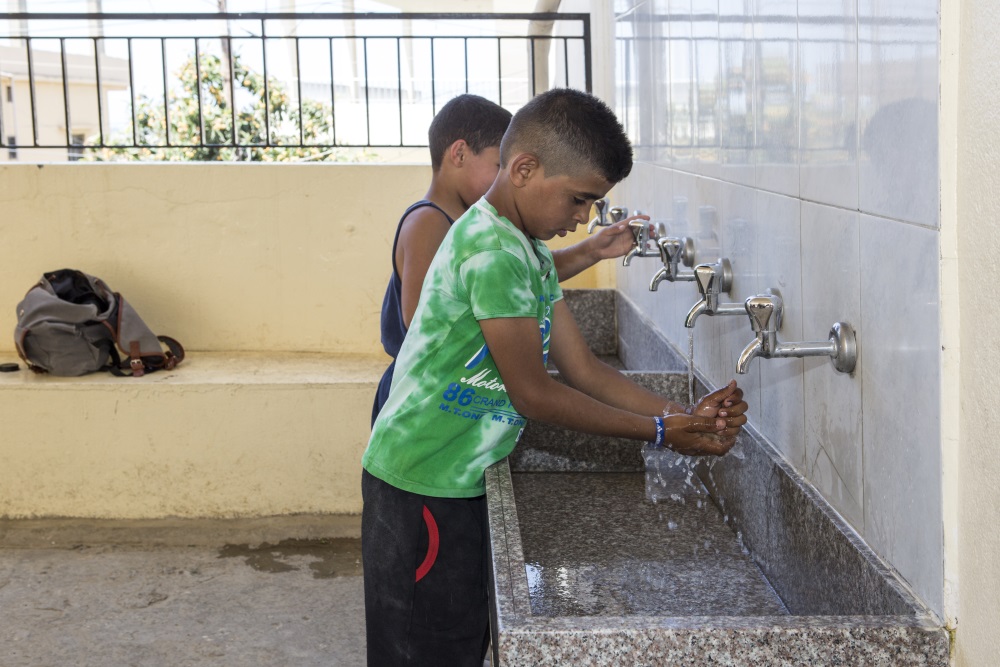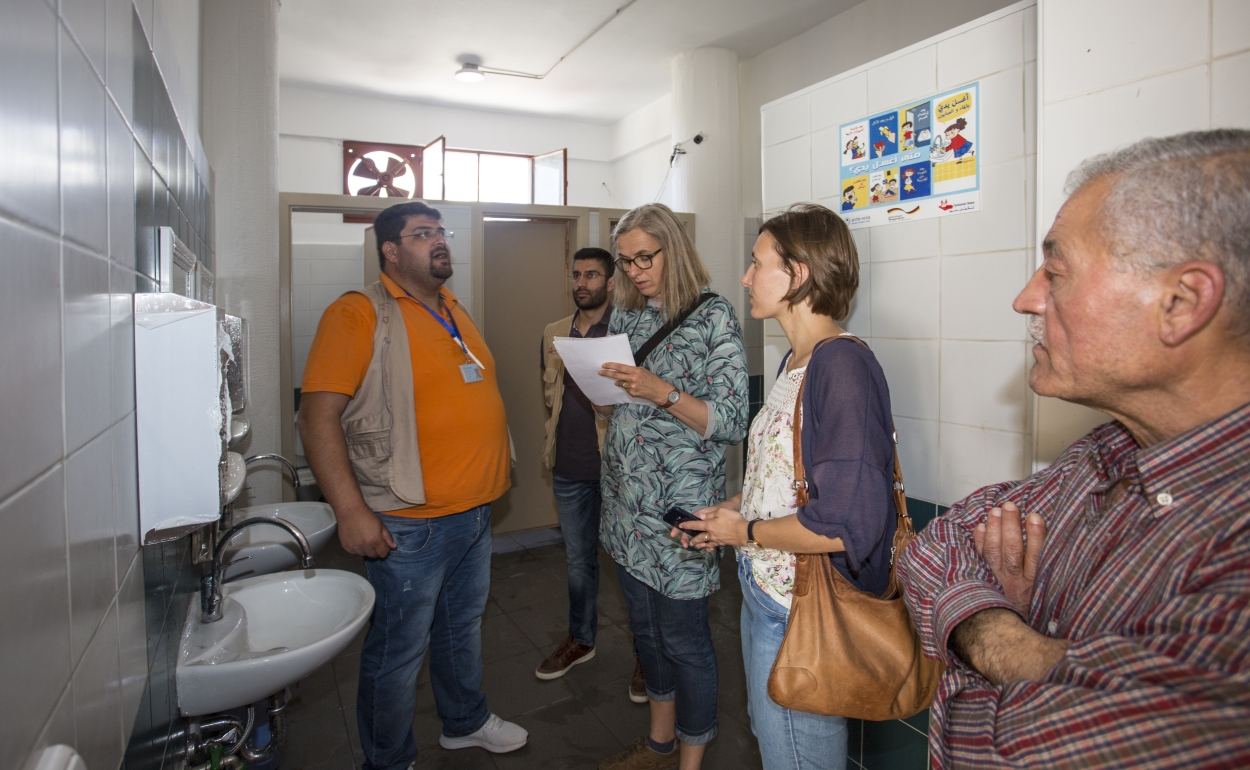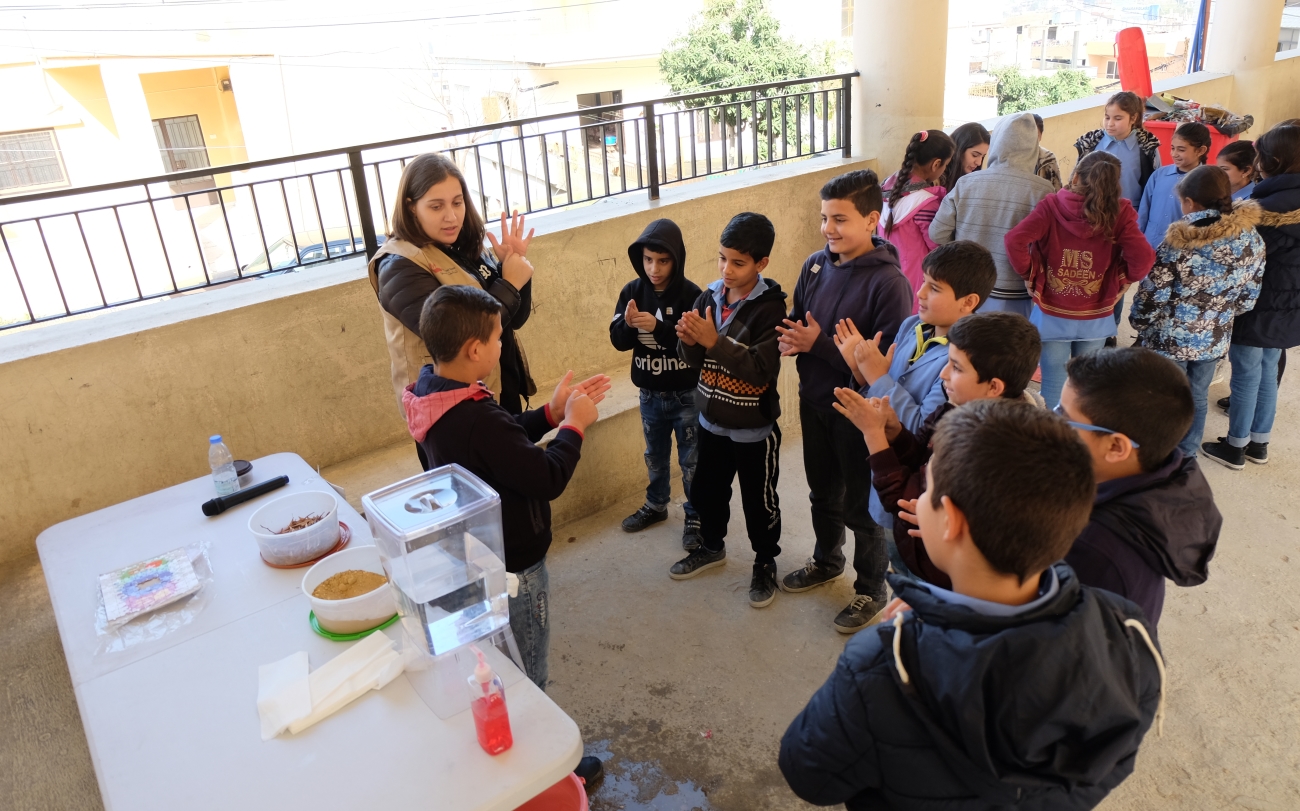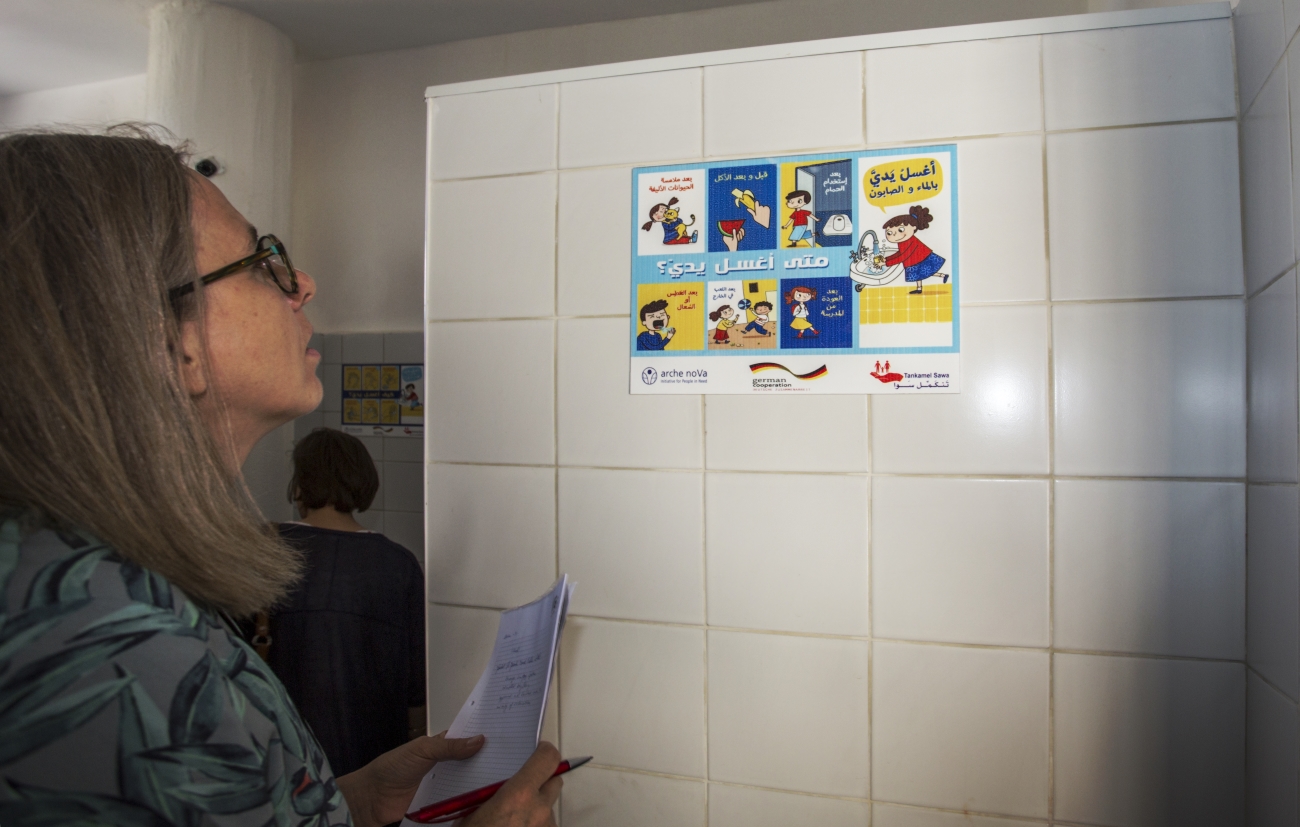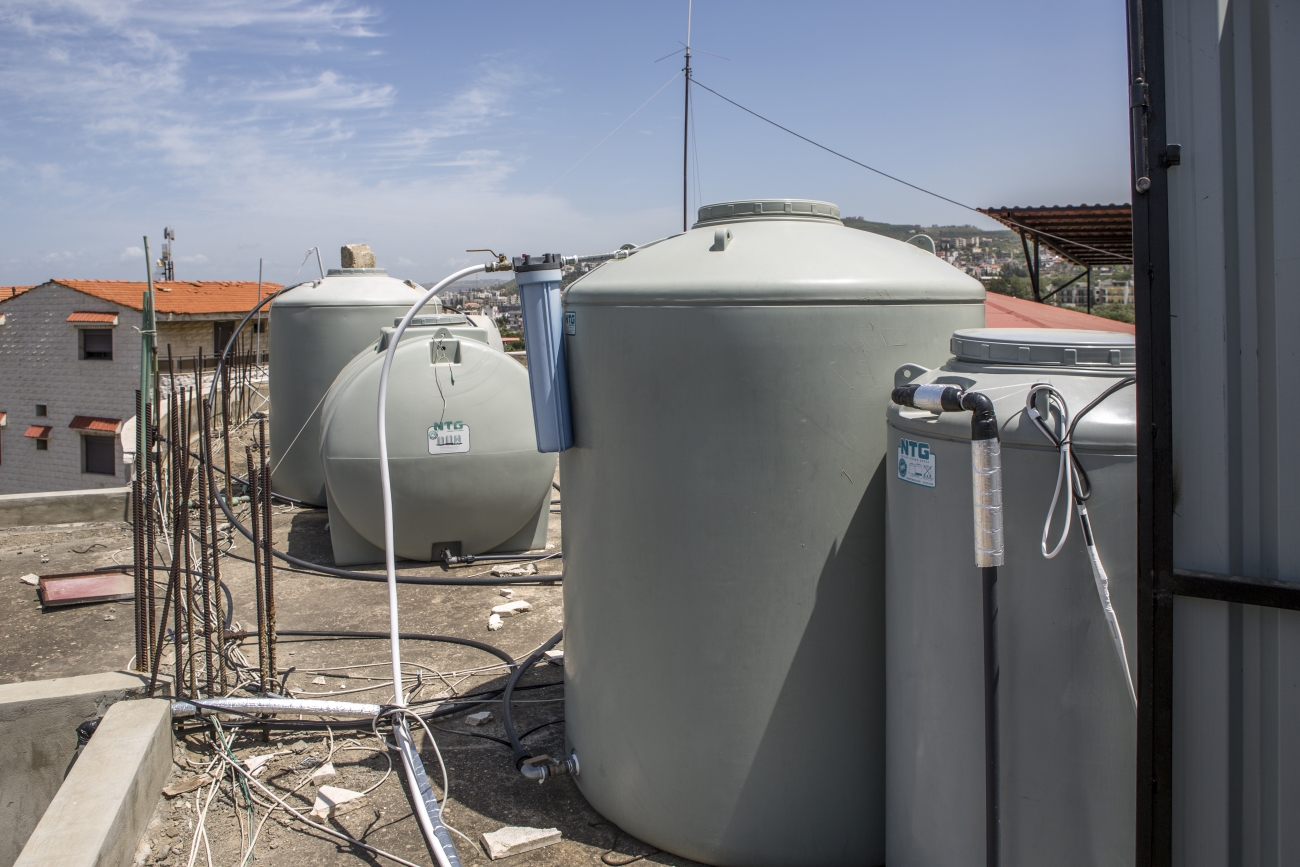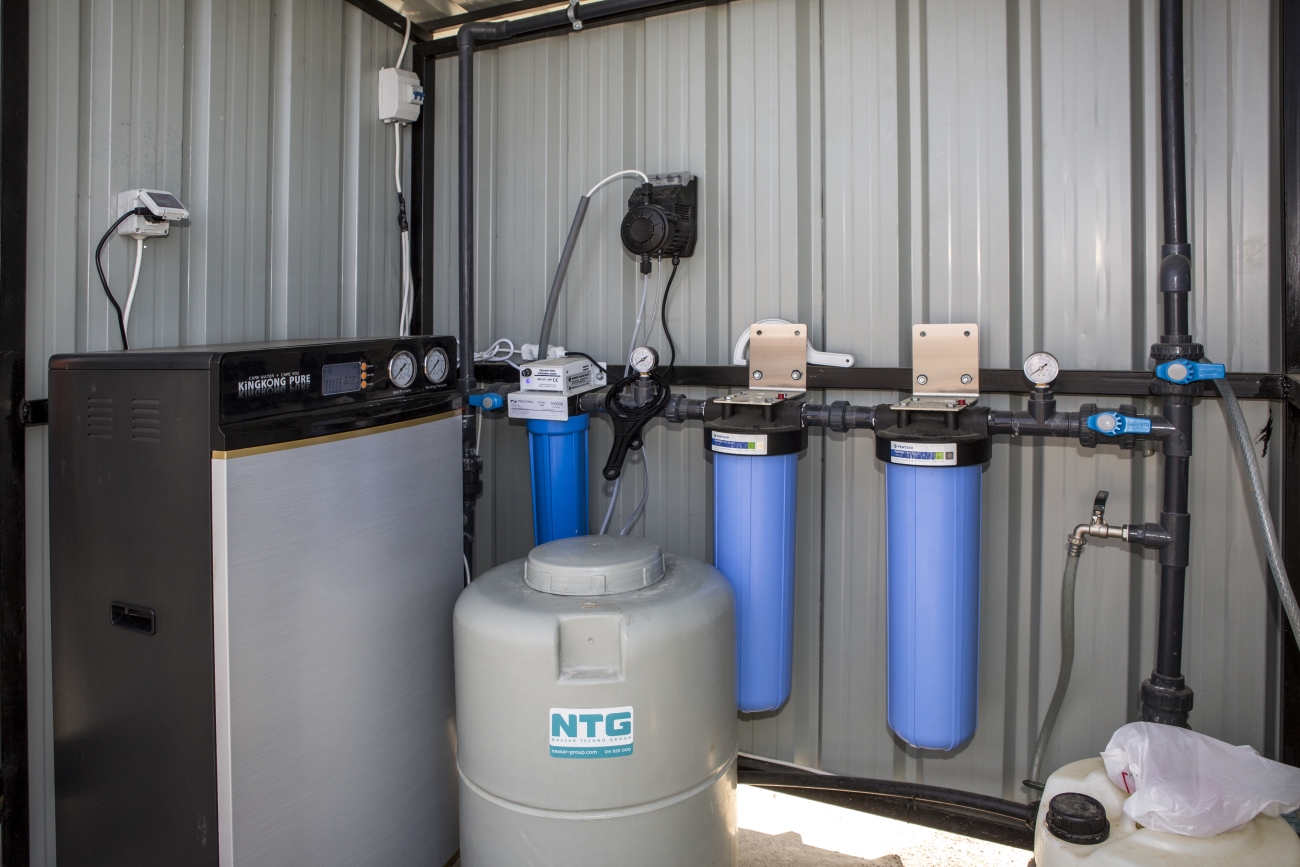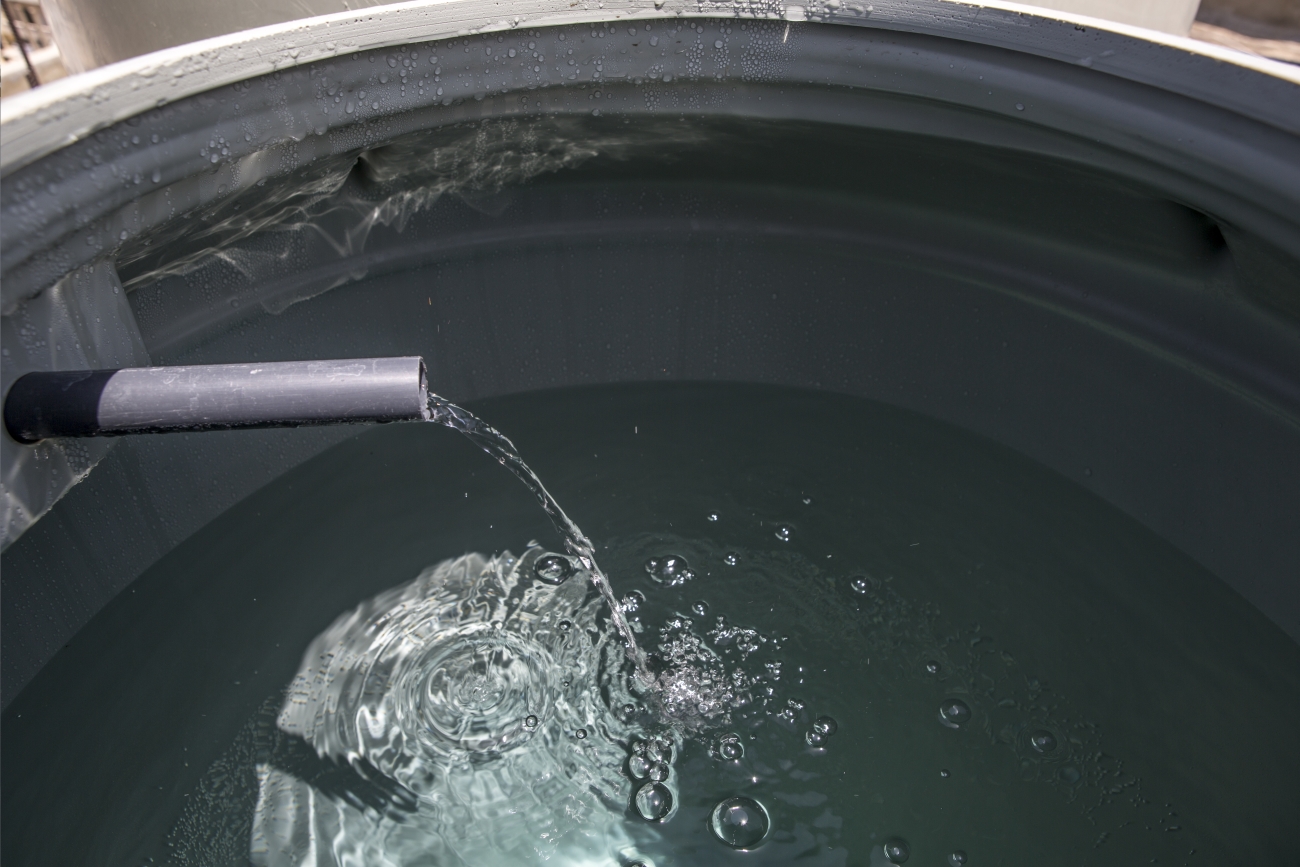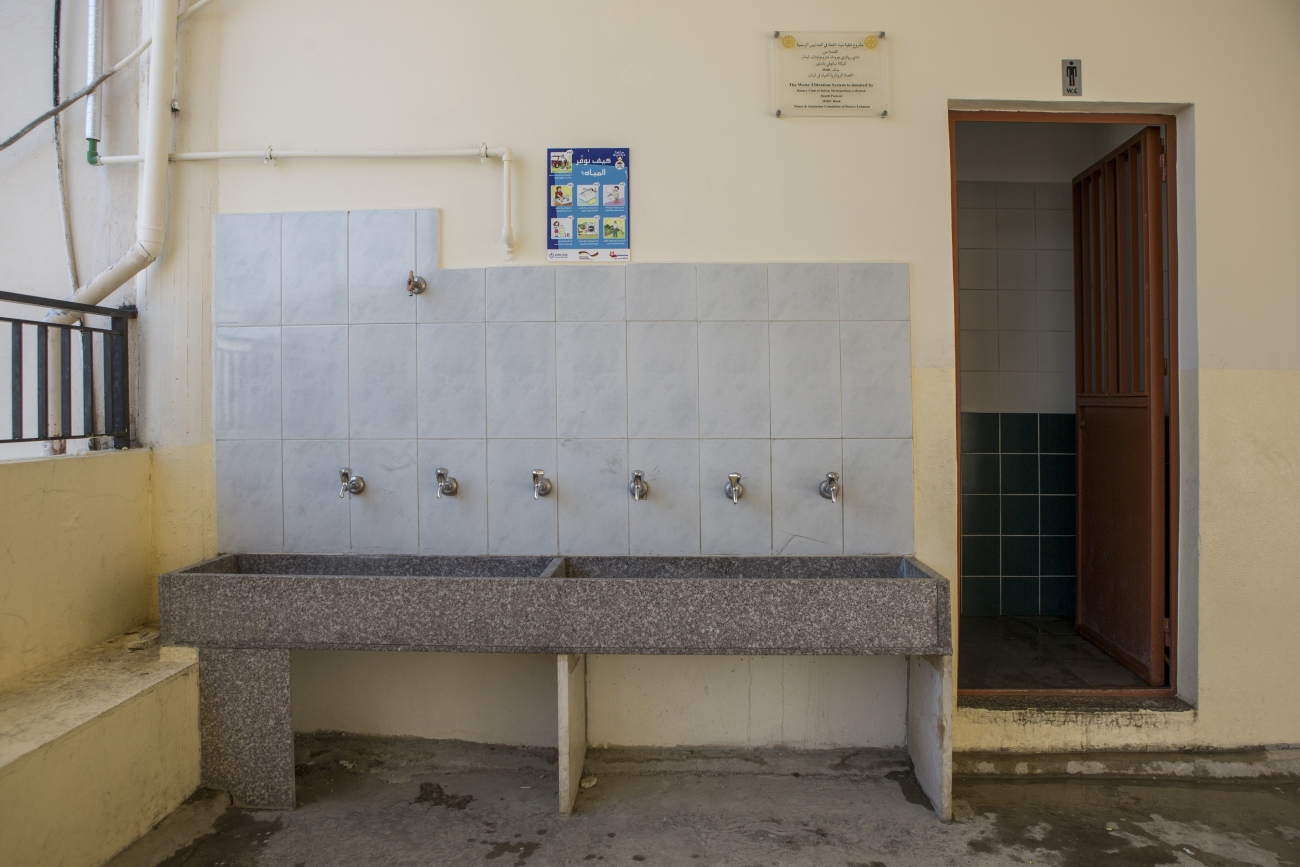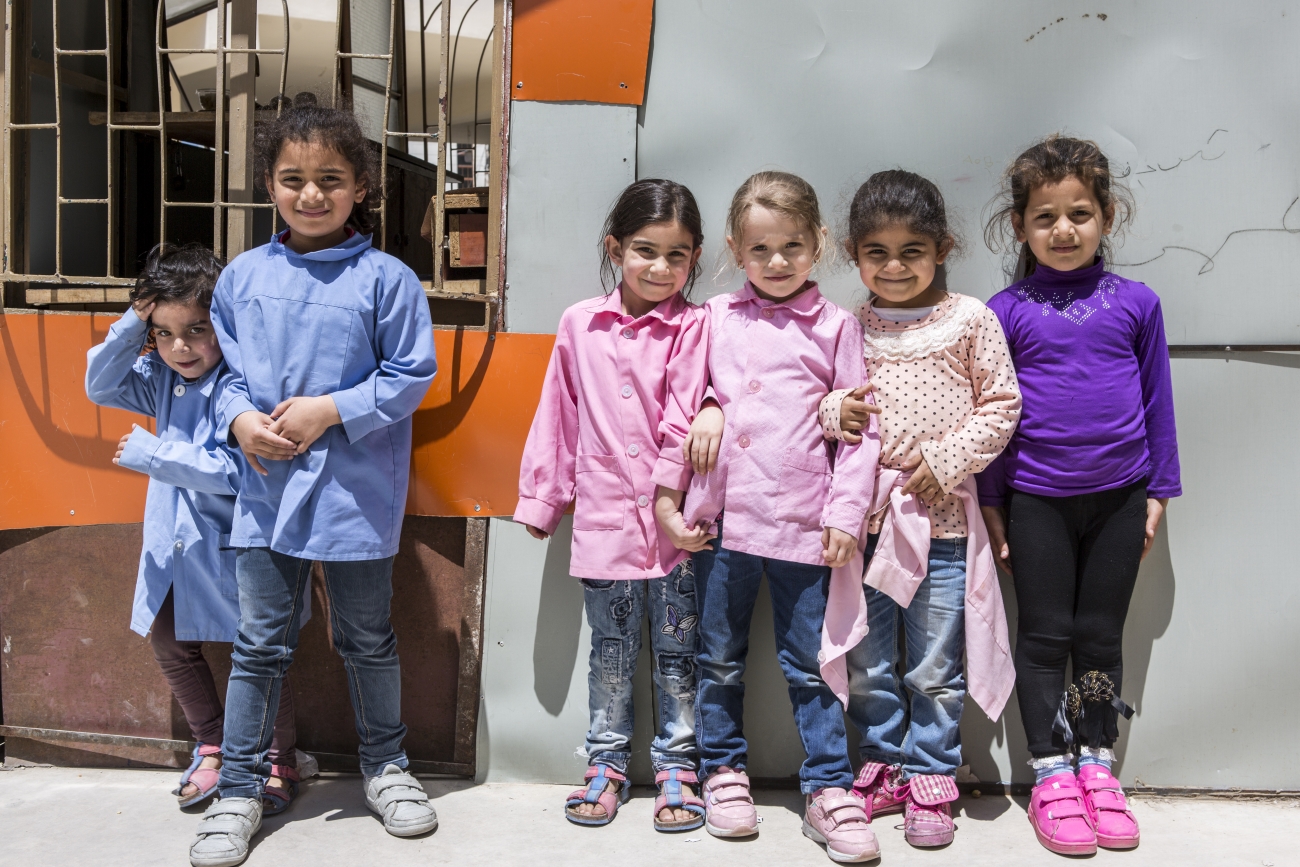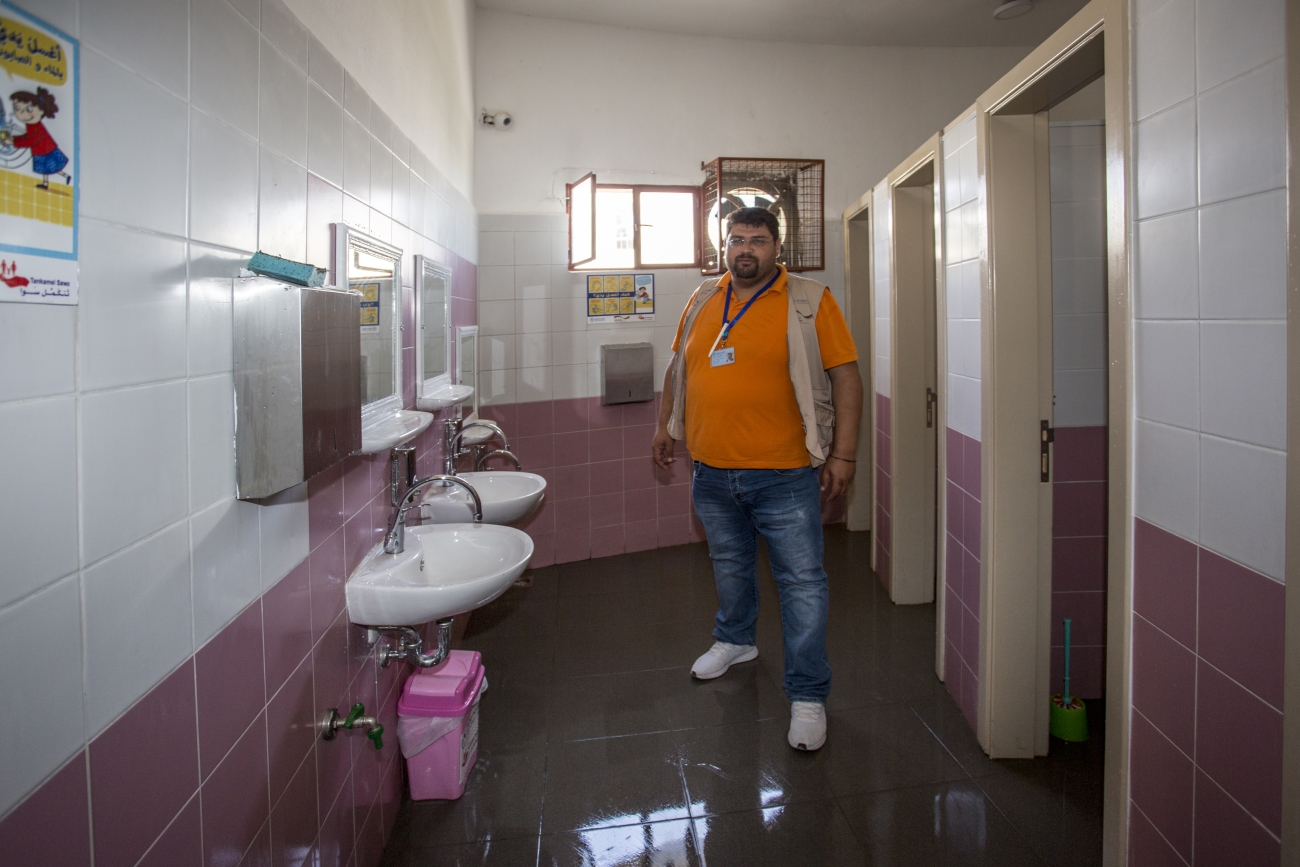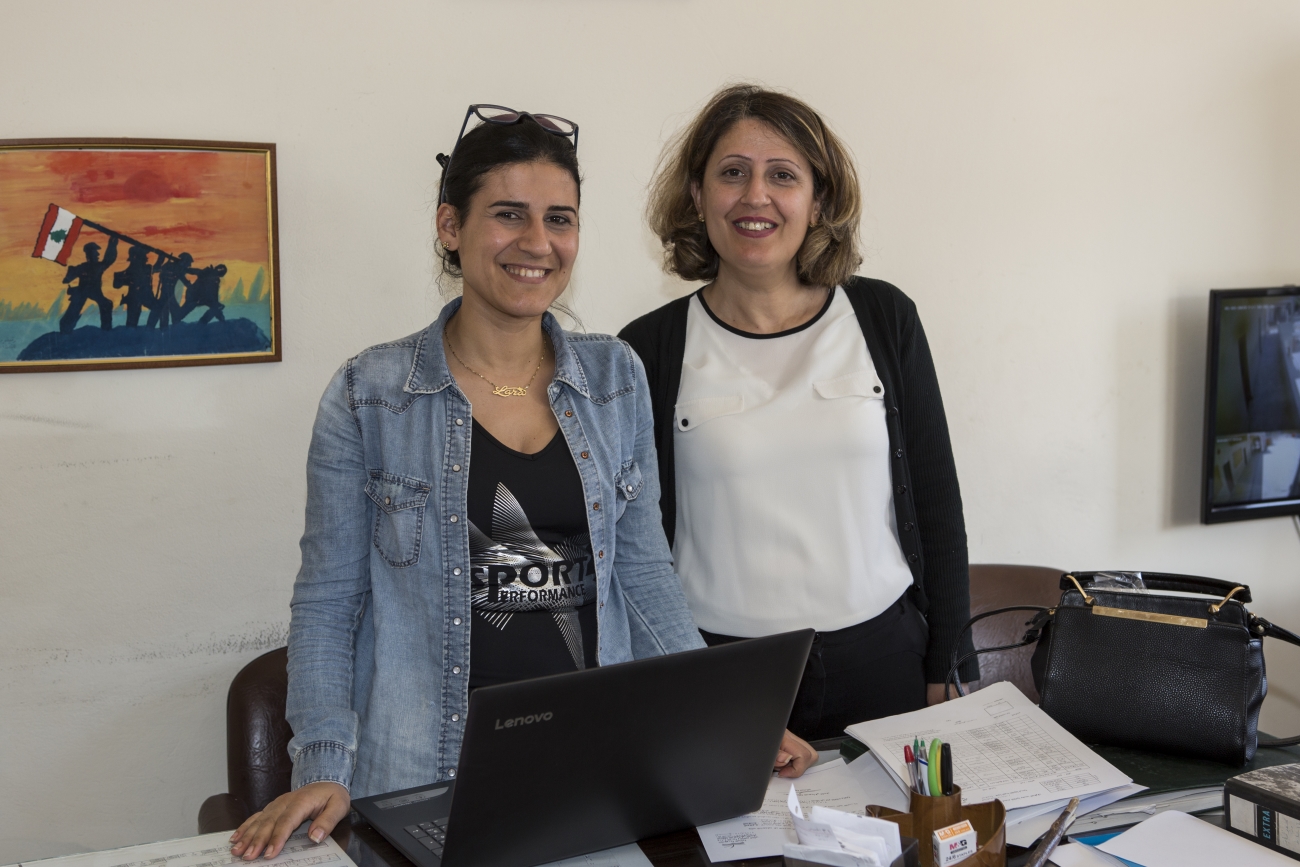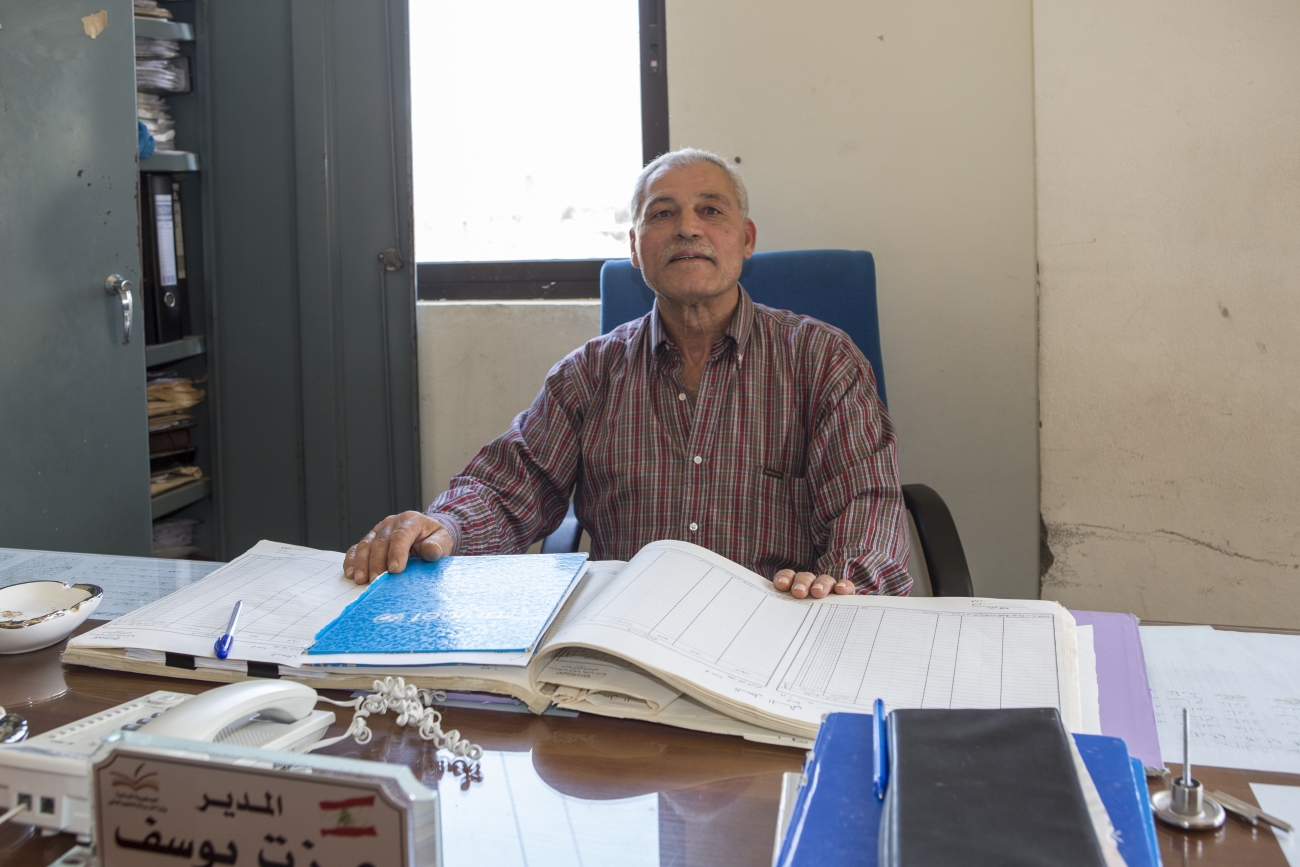The last days were still quite tensed for the headmaster Ezzat Yousef of the Jedeit el Joumeh school. Each break he and his team had to keep the children away from storming the taps, especially after physical education classes. The boys and girls would have loved to quench their thirst at the new taps, however until this week our team has not released the taps. Everyone waited eagerly for the test result from the water laboratory. Now there was the green light from the lab and the responsible school authorities. The system, which was implemented as part of our WASH projects in North Lebanon, is finally operating.
arche noVa furthermore renovated all toilets and hand washbasins as the school was in a dilapidated state. For about seven years, The principal and his team have been working at the limit. In the morning 250 Lebanese children attend school, in the afternoon another 300 refugees from neighbouring Syria. As long as the war in Syria persists, almost every school in North Lebanon is forced to improvise.
Praise from the headmaster
There is a shortage of resources in all aspects. In Jedeit el Joumeh, for example, the roof urgently needs to be repaired. Ezzat Yousef has repeatedly submitted applications to authorities, foundations and organisations. But many things do not work as hoped. "Now, for example, we have a new support offer. I submitted three ideas, including the roof repair. But now it has been decided that the money should be used for painting the school, but the flaking paint is our least problem", the director is upset. Not all aid projects are as well-organised as arche noVa's.
Demand-oriented
Our local team attaches particular importance to a good coordination with the schools, the ministry of education and higher education and water authorities and with the responsible persons on site. The school in Jedeit el Joumeh, informed our colleagues that other aid organisations had already tried to improve the water system. Without success. Until recently, there was a wrongly installed system on the roof that had never been put in function.
The new arche noVa water system at the school has a chlorination system, a reverse osmosis system and special drinking water tanks. "Each and every detail needs to be precisely coordinated to make it work," explains Fadi Mouawad, arche noVa’s WASH engineer in Lebanon. As the whole treatment process is so complex and causes extra costs during operation, the drinking water is not provided for all pipes, but only for the taps in the recreation hall, where as of now, everyone can drink. The new hand washbasins and the toilet flushing systems use domestic water.
Safe drinking water is rare
In general, the water quality in North Lebanon is a major problem. Although there is enough water, it is often heavily contaminated. This is due to the lack of sewage treatment plants, which lead impurities to get into the groundwater. While many people, especially in rural areas, still get their water from unprotected water sources as they did generations before, agriculture has long since arrived in the 21st century. Modern fertilizers and pesticides are used everywhere. The problem in Jedeit el Joumeh and other places: the water systems are polluted with nitrate.
In general, there is a large disparity between the demand and the supply in terms of water infrastructure. The authorities can't keep up. Khaled Obeid, Director General of North Lebanon Water Establishment, sums up the situation as follows: "An increase of one quarter in the population has to be supplied in our region since the war broke out in neighbouring Syria. The entire infrastructure is affected. Today, additional 100,000 cubic metres per day are added to wastewater alone. "The crisis has hit us all at one go. Yet, Lebanon was just beginning to cope with reconstruction in its own country after the end of the civil war," said the head of the water authority. To serve all targets in the drinking water system alone, 500 million dollars would have to be invested.

